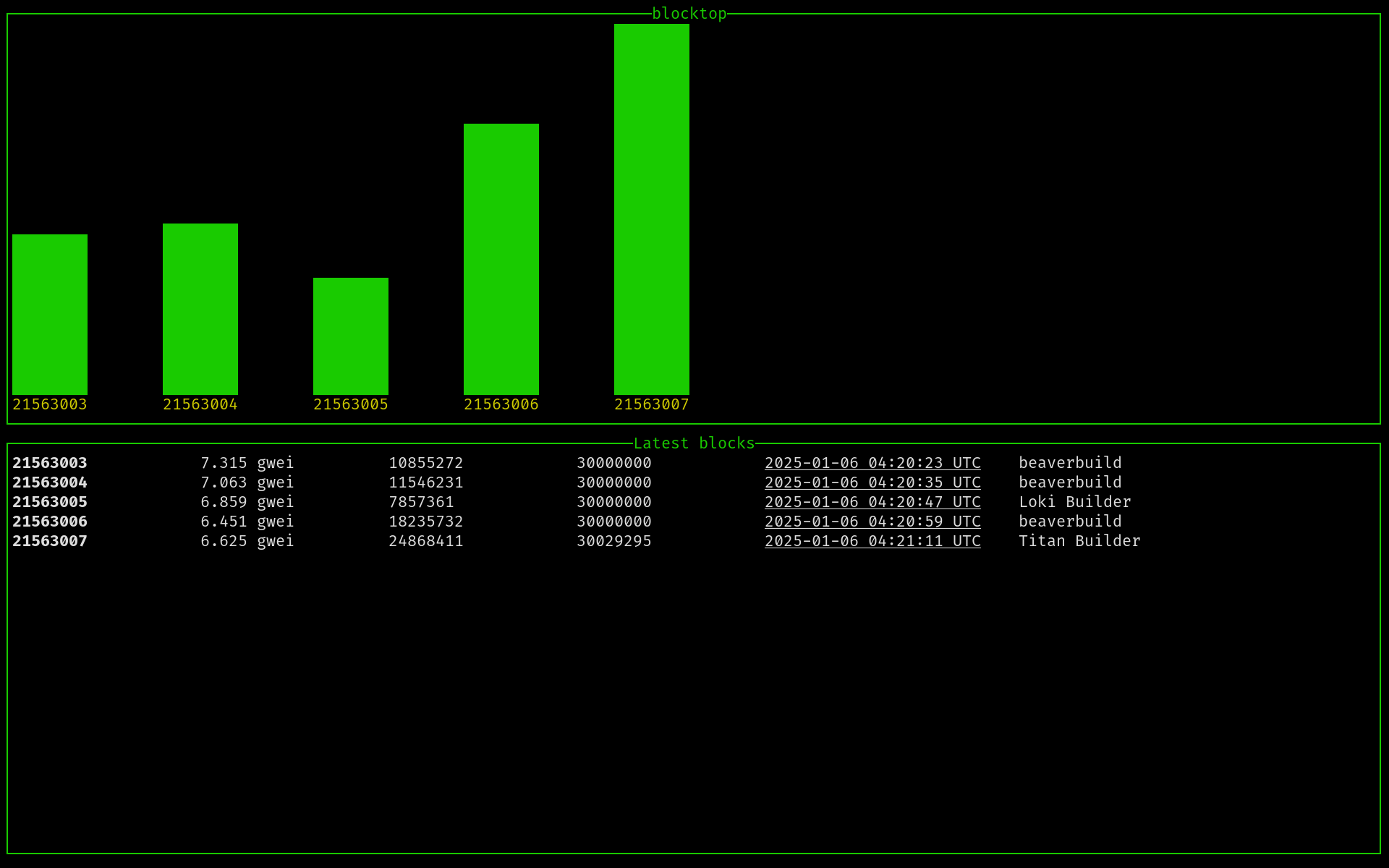Minimalist TUI block explorer for Ethereum networks.
- Gain rapid insights into chain health by viewing new canonical blocks live in a visually clear, low-latency manner
- Drill down into specific details of individual blocks and transactions
- Store chain data to a relational schema using a simple, open format
See FUNCTIONALITY for the full feature list.
$ cargo install blocktop
Note: blocktop is alpha software is is not stable yet.
A minimalist TUI block explorer for Ethereum blockchains
Usage: blocktop [OPTIONS]
Options:
-r, --rpc <RPC> [default: wss://eth.merkle.io]
-d, --db <DB>
--headless
--list-block-hashes
-h, --help Print help
-V, --version Print version
At the moment, blocktop only supports Websockets or Unix domain sockets as transports for RPC communication. blocktop makes use of the free Ethereum RPC service provided by Merkle by default.
The default invocation (i.e., blocktop) will open the TUI and start retrieving data from the default Ethereum RPC node using an in-memory SQLite database.
| Key | Action |
|---|---|
j, k, Up, Down |
Scrolls lists |
e |
In block or transaction view, opens the block or transaction in Etherscan, respectively |
q, Ctrl+c |
Exits the application |
Esc |
Returns to the previous page or exits the application if on the main page |
r |
Toggles the address display mode (i.e., labelled or raw) |
l |
In block view, opens the block in libMEV |
To invoke solely the indexer without the TUI frontend, specify the --headless flag. This mode is the most useful with the RUST_LOG environment variable configured to info:
$ RUST_LOG=info blocktop --headless
2025-01-15T05:13:06.017Z INFO blocktop::client > Websockets client initialised (endpoint: wss://eth.merkle.io/, chain: 1)
2025-01-15T05:13:06.806Z INFO blocktop::db > Wrote block 0x2d21b100f838bb2656bcd0599cbdc30048d6d1a694581c6ec781e8f58961c729 to the database
2025-01-15T05:13:08.077Z INFO blocktop::client > Websockets client initialised (endpoint: wss://eth.merkle.io/, chain: 1)
2025-01-15T05:13:19.203Z INFO blocktop::db > Wrote block 0x5850d0c1ba90da1cfe682ad29a727b841038ead07e198477869550cbb387f053 to the database
2025-01-15T05:13:26.187Z INFO blocktop::db > Wrote block 0x52a43747e20465e7407ccba6915a027457220e06399ab992409b3ace66e40301 to the database
2025-01-15T05:13:39.812Z INFO blocktop::db > Wrote block 0xf31df89a9277295916f714d78a3ccf708826951a7a6e0ac40563b18a51d14f76 to the database
As the warning-level log line at the start of the output indicates, headless operation also benefits from specifying an on-disk database to save chain state to:
$ RUST_LOG=info blocktop --headless --db foobar.db
